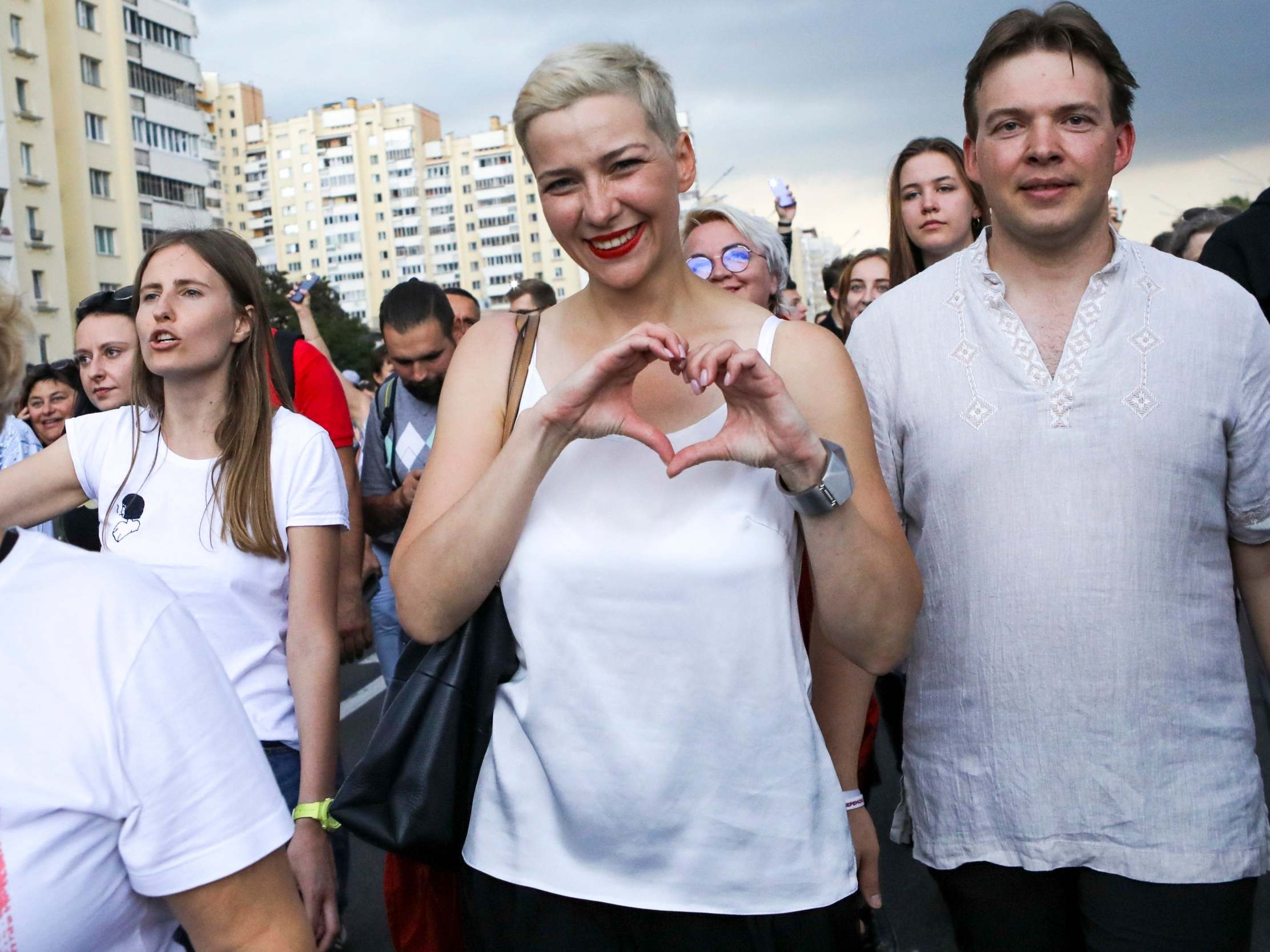Belarus opposition leaders to create new political party
'The country is in a political and socio-economic crisis. Together we know how to exit this crisis.' says opposition leader Maria Kolesnikova

Belarus opposition leader Maria Kolesnikova and the team of jailed opposition figure Viktor Babariko said yesterday they are forming a new political party called Together.
"The country is in a political and socio-economic crisis, and together we know, how to exit this crisis ... Very soon we will hand in the paperwork needed for registration," Ms Kolesnikova said in a video shared online.
Mr Babariko, a banker who was detained last month and excluded from the 9 August election ballot, said in a video recorded before his arrest that one of the party's goals would be constitutional reform.
Protests in Belarus, triggered by a disputed election result that handed President Alexander Lukashenko another term in power, are in their fourth week. The president, in office for 26 years, has shown no inclination to step down.
Another opposition leader, Sviatlana Tsikhanouskaya, has fled to Lithuania for security reasons with her children.
Yesterday authorities also detained the organiser of a strike at a top industrial plant, part of a methodical effort to stifle weeks of protests demanding the resignation of the country's authoritarian leader of 26 years after an election the opposition denounced as being rigged.
Anatoly Bokun, who leads the strike committee at Belaruskali, a huge potash factory in Soligorsk, was detained by police and is facing a 15-day jail sentence on charges of organising an unsanctioned protest. The factory, which accounts for a fifth of the world's potash fertiliser output, is the nation's top cash earner.
The Belaruskali strike committee spokesperson, Gleb Sandras, said authorities had managed to halt a strike at the factory that began two weeks ago and all its potash mines are now working. He said that agents of Belarus's State Security Committee, which still goes by the Soviet-era name KGB, had pressured workers to end the labour action.
“KGB agents have inundated the factory, tracking down the most active workers and using various means of pressure,” Mr Sandras told The Associated Press in a telephone interview. “The authorities have powerful economic instruments. They are blackmailing workers with mass dismissals.”
Strikes at Belaruskali and many other leading industrial plants have cast an unprecedented challenge to Mr Lukashenko, who has kept the bulk of the economy in state hands and relied on blue-collar workers as his main support base.
Belarus deputy prime Minister Yuri Nazarov acknowledged on Monday that the strikes posed a problem, but said that all major industrial plants have resumed normal operations.
Mr Bokun's detention follows the arrests of strike leaders at two other major industrial plants in Minsk last week. The organiser of a strike at the Grodno Azot, a major producer of nitrogen fertilisers, fled to neighbouring Poland to escape detention.
Seeking to stem the protests, Belarusian prosecutors have opened a criminal probe against the opposition Coordination Council created to negotiate a transition of power, accusing its members of undermining the country's security. Last week, Belarusian courts handed 10-day jail sentences to two council members and summoned several others for questioning, including Svetlana Alexievich, who won the 2015 Nobel Prize in literature.
The US and the European Union have criticised the August election as neither free nor fair and urged Belarusian authorities to engage in a dialogue with the opposition – calls the leader has rejected.
The Belarusian government has also cracked down on the news media, deporting some foreign journalists from the country and revoking the accreditation of many Belarusian journalists. Two Moscow-based Associated Press journalists who were covering the recent protests in Belarus were deported to Russia on Saturday. In addition, the AP's Belarusian journalists were told by the government that their press credentials had been revoked.
AP/Reuters
Join our commenting forum
Join thought-provoking conversations, follow other Independent readers and see their replies
Comments
Bookmark popover
Removed from bookmarks